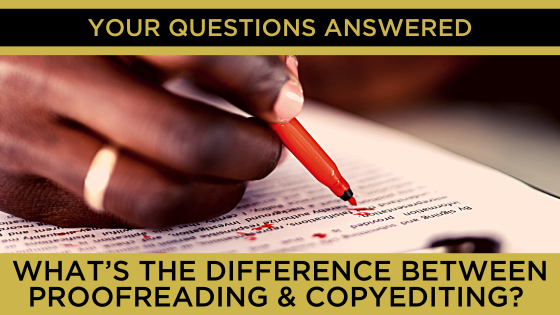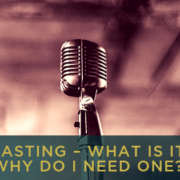What is the difference between proofreading and copyediting?
Quite often, someone gets in touch with us and asks, “Can you proofread my content for me?” The answer is “Yes” but a little investigation soon shows that it isn’t proofreading they actually want, but copyediting (or even line-editing but that’s a whole different article!).
So, let’s get clear on the difference between copyediting and proofreading so you can be sure to get what you expect when working with editors.
Copyediting
Once your content is complete (be that book, blog, brochure or website), copy editing is the process of making sure the work reads smoothly. Typically, a copyeditor might correct sentence structure, point out repetitions or contradictions, spot inconsistencies in how things are presented or suggest more elegant ways to express things.
What you’ll get back will typically be questions, observations and some suggested changes. You might get remarks such as:
“This section doesn’t seem to flow from the previous one – it might make more sense to add another paragraph to make the flow logical.”
Or
“You’ve used the expression ‘pity party’ – but this is set in 1942 and that expression didn’t come into use until 1973.”
Depending on the scope of the work you’ve agreed, you’ll get more or less changes to the actual content. The overall message will never be changed – but sometimes the way it is expressed might alter.
Proofreading
Done as late as possible in the process, proofreading is to ensure that punctuation is correct and everything is as close to perfect as possible prior to publication.
If you are getting something printed you definitely want to use a proofreader, as once you have 1000 copies in your office, it is too late to get a typo fixed.
A proofreader is looking at words and being sure that they are correct in context. They won’t consider style or flow. So everything will be spelled correctly, links will be checked to be sure they end up in the right place, the grammar will be right and the images will be checked for consistent positioning on the page.
What they won’t do is make observations on how well the piece is written or whether it meets the objectives you have for it.
Knowing which service you need
Many (but not all) editors are also proofreaders and vice-versa. That is good news because the chances are that, as long as you can describe the result you are expecting from them, they will know whether you need an edit or a proofread.
But, in simple terms, if you want someone to take your first draft and make it sparkle, you want an editor. If you are happy with the words and just want to be sure there are no mistakes, you want a proofreader.
If you want to chat about making your content even better, get in touch to discuss our editing and proofreading services.












Leave a Reply
Want to join the discussion?Feel free to contribute!